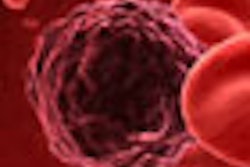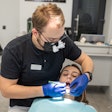Drug shortages are taking a toll on cancer patients in the U.S., forcing treatment changes and delays, and causing more therapy-related complications and higher costs, according to a new study in the American Journal of Health-System Pharmacy (April 1, 2013, Vol. 70:7, pp. 609-617).
A national survey of health professionals conducted by St. Jude Children's Research Hospital in Memphis, TN, queried oncology pharmacists and others involved in managing cancer drug shortages for U.S. academic medical centers, community hospitals, and other cancer treatment facilities.
Of the 243 people who completed the survey, 98% reported a shortage of at least one chemotherapy agent or other essential cancer-related drug in the previous 12 months. Some 93% said shortages forced delays in chemotherapy or other changes in cancer drug therapy. It focused on a 12-month period ending October 2011.
One institution linked a patient's death to a shortage-related medication mistake.
The researchers said the shortages also disrupted cancer research and added to the cost and risks associated with cancer treatment. Overall, 16% of respondents tied shortages to adverse patient outcomes, including disease progression or more treatment-related complications.
The survey is the first to focus specifically on the impact of cancer-related drug shortages.
The survey found shortages increase healthcare costs as scarcity drives up the price and requires staff time to manage the problem. About one-third of institutions in the survey reported pharmacy staff spent at least 20 hours each week working on issues related to the drug shortage. Some 85% reported shortages led to higher medical costs.
Drug shortages also disrupted the clinical trials for developing new cancer treatments. The survey found that shortages forced 44% of institutions to either halt or delay enrollment in clinical trials. The problem also led some providers to change or omit medications.
The drugs most frequently reported in short supply were fluorouracil, leucovorin, liposomal doxorubicin, and paclitaxel, according to the study authors.


















